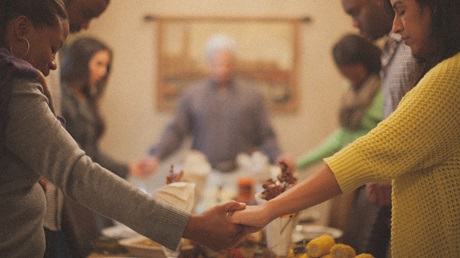The Nativity scene would be empty without Jews, Arabs, Africans, and displaced people. Here’s what that means for your holiday.

In October, I visited a Syrian refugee family who was recently resettled through World Relief. I went with friends and looked forward to getting to know the family and having our kids play together. When I opened the car door, the Syrian father, Nader, scooped up my one-year-old son, David, who started crying immediately. Feeling undeterred, Nader hugged him warmly, bounced him up and down, and went inside his home to get a toy bicycle for him to play with. In that moment, Nader endeared himself to my family and me—I’ve never seen an older man so comfortable and affectionate with a child not his own.
Nader is a Syrian political refugee who arrived in the United States in early September. He came with his wife, Ramya and their four children, all of whom gladly share toys with my son whenever we spend time together. (Their girls, in fact, often think David is a little doll whom they pick up and carry around, much to his initial horror, then delight.) The Kassab* family’s kind, calm exterior masks their inner turmoil and pain. They come from an area in Syria called Daara, known as the “cradle of the revolution”—the place where protests sparked the beginning of the Syrian uprising of 2011. After a water tank behind their house was bombed and part of their home was damaged, Nader and his family fled from Daara into Jordan. Although Syria used to be the second-largest host country to refugees, it’s now the country that produces the largest number of refugees. It is, in fact, the crucible of the world’s worst migration crisis.
This divisive election year has made it easy for some Americans to make generalizations about immigrants like the Kassabs. As someone who works for World Relief, …
